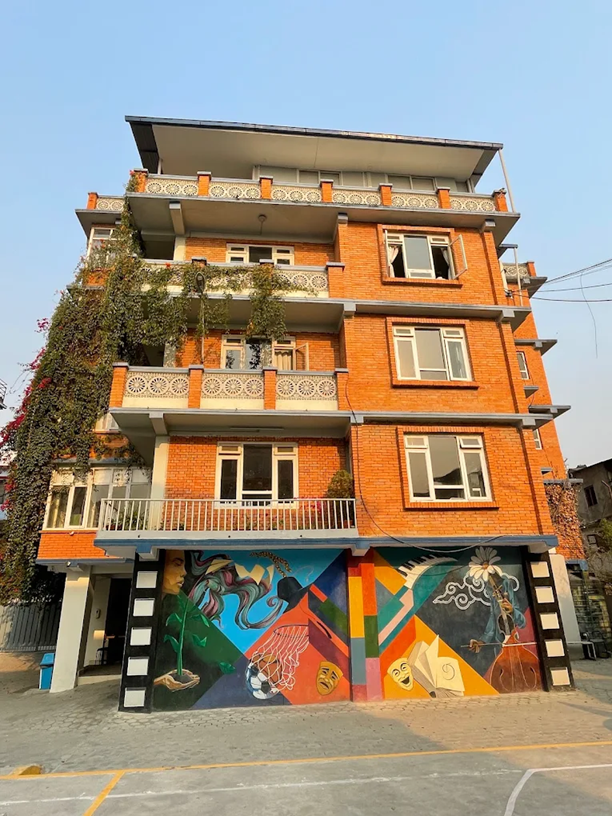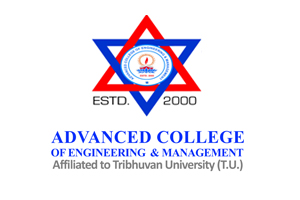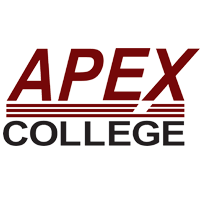Overview
Thames International College (Old Baneshwor, Kathmandu) is a Tribhuvan University (TU)–affiliated institution offering undergraduate and graduate programs for students in Nepal and abroad. Within TU’s framework, the college runs programs such as BBA, BBM, BITM, BCA, BASW/BSW, BRD, BA (Psychology, Sociology, Journalism & Mass Communication), BBS, and MBS.
Quick Highlights
-
Affiliation: Tribhuvan University (TU)
-
Location: Old Baneshwor, Kathmandu, Nepal
-
Established: 2009
-
Program Levels: Bachelor’s and Master’s (TU curriculum)
-
Key Streams: Management, Information Technology, Social Sciences & Humanities
-
Admission Tests: CMAT for BBA/BBM/BITM (TU); TU entrance for BCA; college process for BBS; TU rules for MBS
-
Seat Capacity (by program): BBA (64), BCA (35), BBM (45), BASW (32), BA (various), BBS (as per TU norms), MBS (as per TU norms); BITM (66)
-
Scholarships: Merit-based, need-based, program-specific (including IT-focused), early application, and full-tuition waiver
-
Teaching Focus: TU syllabus delivery with classwork, tutorials, practicals (where applicable), and assessments through internal and board examinations
-
Student Support: Counseling, clubs and societies, internships/field visits, library and labs, skill-building activities
Academic Programs Offered
Management
Bachelor of Business Administration (BBA)
Four-year (eight-semester) TU program covering accounting, finance, marketing, organizational studies, operations, research methods, and strategy under TU’s Faculty of Management. The structure mixes foundation subjects, functional areas, and project/field components set by TU. CMAT qualification (TU) is mandatory for entry.
Seat Capacity: 64.
Bachelor of Business Management (BBM)
Four-year TU program focusing on managerial knowledge and decision-making within the Faculty of Management framework. It includes courses in leadership, organizational behavior, business environment, finance, marketing, operations, and entrepreneurship as prescribed by TU. CMAT (TU) is required.
Seat Capacity: 45.
Bachelor of Business Studies (BBS)
Four-year TU program emphasizing core areas of business and commerce per TU’s annual/semester modality. Entry follows TU and college rules (no CMAT for BBS per current TU practice, subject to change).
Master of Business Studies (MBS)
Graduate-level TU program aimed at advanced business theory and practice based on TU curriculum. Admission follows TU eligibility and the college’s standard process (including screening/interview where applicable).
Information Technology
Bachelor of Information Technology Management (BITM)
TU’s integrated program combines computing, data/information systems, and business fundamentals. Coursework typically spans database systems, programming, systems analysis, networking, IS management, and business subjects defined by TU. CMAT (TU) applies for BITM under the Faculty of Management.
Seat Capacity: 66
Bachelor of Computer Application (BCA)
Four-year TU program centered on programming, algorithms, data structures, database, web technologies, software engineering concepts, and applied computing. TU conducts a separate entrance examination for BCA (not CMAT).
Seat Capacity: 35.
Social Sciences & Humanities
Bachelor of Arts in Social Work (BASW/BSW)
TU program that introduces social policy, community development, counseling basics, research methods, fieldwork, and documentation. Graduates often pursue roles in community organizations, NGOs/INGOs, schools, and healthcare settings.
Seat Capacity: 32 (BASW)
Bachelor of Rural Development (BRD)
Focus on rural livelihoods, local governance, community planning, participatory methods, and project management under TU’s BARD/BRD framework. Field exposure and community visits are typically included for applied understanding.
BA in Psychology
Foundations of general psychology, developmental stages, social psychology, basic assessment concepts, and research methods per TU syllabus. Graduates may continue toward counseling-oriented study and allied roles with proper licensure and further training where required.
BA in Sociology
Study of social structures, culture, social change, research methods, and Nepali social contexts under TU BA Sociology. Coursework supports research awareness and field inquiry in social issues.
BA in Journalism & Mass Communication (BAJM)
Media writing, reporting/editing basics, media law/ethics, public communication, and content production under TU guidelines. Practical coursework is applied through labs/assignments.
Admission Process
General Steps (All Programs)
1. Program Counseling:
Meet the counseling team to discuss program fit, entry criteria, and application windows. Obtain the checklist of required documents and any test dates.
2. Application Submission:
Submit the college application with academic transcripts/certificates (SEE/Grade 10, Grade 11–12 or A-Levels equivalence via NEB), identification, photographs, and any required statements or forms. International or out-of-Valley applicants can request online guidance.
3. Entrance Requirement (as applicable):
-
BBA/BBM/BTIM: CMAT (TU) is mandatory.
-
BCA: Separate TU entrance for BCA.
-
BBS/MBS: Follow TU and college-level criteria.
-
English Proficiency: As per TU/college norms; an interview may be required.
Screening & Interview:
Shortlisted applicants may be invited for an interview to confirm academic readiness and program interest.
Merit List & Offer:
Offers are extended based on TU test results (where applicable), overall academic performance, and seat availability.
Enrollment & Orientation:
Complete fee formalities, document verification, and orientation. Collect academic calendar, class schedule, and student handbook.
Documents Checklist (typical):
SEE/Grade 10 mark sheet & certificate
Grade 11–12 mark sheets & provisional certificate (or A-Levels with NEB equivalence)
Recent photographs and valid ID
Entrance scorecard (CMAT/BCA entrance as applicable)
Migration certificate
Any scholarship forms/supporting documents
Admission Calendar: TU and college announcements govern dates. Applicants should track CMAT and BCA entrance timelines from TU notices and the college admission desk.
Eligibility Notes: Minimum grade thresholds follow TU rules for each program. Always cross-check the latest TU eligibility criteria before applying.
Teaching Faculty and Learning Methodology
Faculty members deliver TU-approved syllabi through lectures, seminars, problem-solving sessions, labs (for IT and selected BA streams), and guided assignments. Academic support typically includes:
-
Tutorials & Workshops: Small-group sessions for core subjects and research/report writing.
-
Coursework & Practicals: Lab work (IT), reporting/field tasks (Social Work, BRD), presentations, and case analysis (Management).
-
Assessment Mix: Internal assessments (tests, assignments, practical records) plus TU board examinations.
-
Academic Integrity: Plagiarism-free submissions, proper referencing, and adherence to TU/college exam rules.
-
Advising: Program coordinators and counselors assist with course planning, exam registration, and progress tracking.
Infrastructure and Learning Facilities
-
Library & e-Resources: Texts aligned to TU syllabi, reference works, journals, and reading spaces.
-
Computer Labs: Programming, database, and web labs for BCA/BITM and allied courses.
-
Classrooms: Projector-enabled rooms, whiteboards, and standard lecture aids.
-
Study & Discussion Areas: Designated zones for group work and review sessions.
-
Student Services: Counseling, admissions help desk, and request-based online interactions for out-of-Valley applicants.
-
Accessibility: Central Kathmandu location (Old Baneshwor) for transportation access.
-
Safety & Code of Conduct: Campus guidelines for attendance, examination norms, and academic discipline are shared during orientation.
Student Life and Campus Experience
Campus life balances academics with clubs, seminars, outreach, and peer learning. Students can:
-
Join student clubs related to management, technology, arts/media, community service, debate/speaking, and sports.
-
Participate in guest talks and panel sessions hosted by departments and student bodies.
-
Engage in field visits, internships, or projects as guided by the program office and TU norms.
-
Access mentoring and counseling to adjust to academic load and plan next steps for study or work.
The aim is to allow students to build academic depth while developing communication, teamwork, and project skills that support further study or early-career roles.
Extracurricular Activities (ECA)
-
Clubs & Societies: Literature, public speaking, tech coding circles, social impact groups, media and arts, and sports communities.
-
Events & Exhibitions: Project showcases, coding contests, research poster sessions, cultural programs, and inter-college meets.
-
Community Engagement: Social campaigns, surveys, awareness programs, and clean-up or donation drives coordinated by student units.
-
Competitions: Academic quizzes, business idea pitches, and case forums conducted under faculty supervision.
Scholarships and Financial Support
Thames College offers multiple support routes. Criteria and amounts can change each session; applicants should confirm the latest rules at the admissions desk.
1. Chairman’s Merit Scholarship Award
For new entrants with strong Grade 10/11/12 results. Renewal may depend on semester performance. Baseline criteria: CGPA around 3.5/4.0 or ~75% in the stated levels.
2. Aspiring Entrepreneur Scholarship (BBM/BBA)
For students pursuing BBM or BBA who show interest in entrepreneurship and meet academic criteria. Baseline criteria: CGPA around 2.75/4.0 or ~60% at Grade 10/11/12.
3. Information Technology Scholarship Award (BCA/BITM)
For IT-oriented applicants to BCA/v who meet academic benchmarks. Baseline criteria: CGPA around 2.75/4.0 or ~60%
4. Thames Need-Based Scholarship
For applicants from lower-income households meeting academic minima and income documentation benchmarks. Baseline criteria: Family income under NRs. 500,000/year and minimum CGPA thresholds.
5. Full Tuition Waiver Scholarship
For students with very low household income and government-school background in Grades 10–12 who meet minimum academic criteria. Scope: Full tuition for the program duration, subject to policy and performance.
6. Early Bird Scholarship - For early applicants at the start of the admission season with a stated support ceiling (e.g., up to NRs. 40,000).
Smart Saving Scheme - One-time fee arrangement discount (e.g., 15%) for upfront payment at admission.
Application Process: Prepare transcripts, ID, income proofs (for need-based), and any scholarship-specific forms before deadlines. Keep photocopies and digital scans ready.
Achievements and Institutional Milestones
-
2009: College established in Old Baneshwor, Kathmandu.
-
TU Affiliation: Multiple bachelor’s programs plus MBS under TU frameworks.
-
Program Growth: Expansion from management to IT and social sciences/humanities per TU curriculum updates.
-
Student Work: Course projects, reports, media outputs, and field assignments archived within departments.
-
Community Links: Engagements with local organizations through Social Work and Rural Development coursework.
Why Choose This Institution?
-
TU-Aligned Pathways: Degrees recognized within Nepal’s public university system.
-
Program Breadth: Management, IT, and social science options allow cross-interest exploration within TU guidelines.
-
Central Location: Old Baneshwor setting with city transport access.
-
Structured Entry: Clear TU entrance routes (CMAT/BCA entrance) reduce ambiguity for applicants.
-
Student Support: Counseling, tutorials, labs, library services, and club activities create a balanced study routine.
-
Transparent Communication: Seat numbers listed where provided; scholarship routes described with prompts for session-wise updates.
Conclusion
Thames International College delivers TU-based programs in management, IT, and social sciences for students who want a central Kathmandu campus, defined entrance routes, and practical academic support. This profile is designed to help applicants and guardians compare degree options, understand entry steps, and review study resources without marketing phrasing.
Frequently Asked Questions (FAQ)
1) Which programs require CMAT?
BBA, BBM, and BITM under TU’s Faculty of Management typically require CMAT. Always confirm the current TU notice before application.
2) Does BCA need CMAT?
No. TU conducts a separate entrance examination for BCA. Check dates and centers on official TU notices.
3) Are seat capacities fixed each year?
Seat allocations follow TU and regulator approvals. Numbers may update each intake.
4) What is the difference between BBA and BBM?
Both are management programs under TU. BBA spans core business functions; BBM focuses on managerial studies with defined pathways set by TU. Review the latest syllabus and course mapping before choosing.
5) Is the program “BITM”?
TU runs BITM (Bachelor of Information Management). If the college materials mention “BITM,” confirm with the program office whether it refers to TU’s BITM or an internal label.
6) Are there scholarships for IT programs?
Yes. An IT-focused scholarship exists for BCA/BITM applicants, in addition to merit-based and need-based options. Criteria can change; check current rules.
7) Can out-of-Valley students apply without visiting campus?
Applicants can begin online. Interviews or counseling may be held virtually when permitted. Original documents must be verified as per college policy.
8) What learning support is available?
Tutorials, library access, labs for IT courses, advising, and student-run clubs. Exact services may vary by semester; confirm with the program office.
9) How are students evaluated?
Internal assessments and TU board examinations. Practical records/labs apply to relevant courses, including IT and Social Work.
10) Does the college offer internships or fieldwork?
Many programs include projects, field visits, or placements aligned to TU rules. Internship availability may depend on program and semester.
11) What documents do I need at admission time?
SEE/Grade 10 certificate, Grade 11–12 results or A-Levels with NEB equivalence, photographs, ID, and entrance scorecards where applicable. Migration and other documents may be needed at enrollment.
12) Are there evening or weekend classes?
Class timing follows the academic schedule set each semester. Ask the program office about current slots and any special arrangements.
Contact Thames International College's administrative office for detailed information on the course, admissions, location, fees, scholarships, facilities, counseling, or eligibility.
Contact Details
Thames International College
Surya Bikram Gyawali Marg, Old Baneshwor, PO Box 1195, Kathmandu
Phone: +977-1-5971224, +977-9801006213
Email: info@thamescollege.edu.np
Website: www.thamescollege.edu.np




















You need to login to comment.